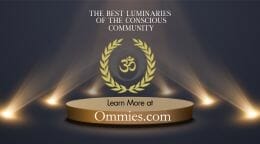Rabindranath Tagore – 150th Birth Anniversary
Rabindranath Tagore (1861-1941)
“The darkness of egoism which will have to be destroyed is the egoism of the Nation. The ideal of India is against the intense consciousness of the separateness of one’s own people from others, which inevitably leads to ceaseless conflicts. There my prayer is ‘let India stand for the co-operation of all the people of the world. “ ~Rabindranath Tagore
In a period of rapid change as we face today, it is often difficult to find the right balance between the cultural contributions and needs of the local, the national, and the universal. One way of finding this balance is to look at the life and work of others, who earlier confronted the same challenges. One such person was the poet, writer and cultural reformer Rabindranath Tagore. As Amiya Chakravarty, a literary secretary of Tagore wrote “Each individual must strike the ‘universal concrete’ in terms of his own creative effort, in the milieu of his own cultural heritage. Only by proceeding from wherever we are, geographically, spiritually or vocationally, can we make the integral effort for peace. The peace-workers belong to the entire human family, using the language or religious associations to which he has been born, and which he transforms, not necessarily by revolt but by inner transcendence.” (1)
Rabindranath Tagore was the Renaissance man of modern India — the bridge from an Indian culture dominated on the one hand by a traditionalism that had long ceased to be creative and on the other by English colonial practice whose reforms were self-interested. He was known worldwide as a poet having received the Nobel Prize for Literature in 1913. His aim was to combine a renewal of local thought, in particular that of his native Bengal, with an appreciation of the cultures of the world. The motto of the educational center he founded, Visva-Bharati, was “Where the world makes its home in a single nest.”
He hoped to be able to create such a synthesis at the local level and in 1922 created a rural reconstruction program combining education and agricultural reform at Santiniketan. As he wrote of villages “Villages are like women. In their keeping is the cradle of the race. They are nearer to nature than towns are, therefore, in closer touch with the function of life. They have the atmosphere which possesses a natural power of healing. It is the function of the village, like that of a woman, to provide people with their elemental needs, with food and joy, with the simple poetry of life, and with those ceremonies of beauty which the village spontaneously produces and in which she finds delight. But when constant strain is put upon her through the extortionate claim of ambition, when her resources are exploited through the excessive stimulus of temptation, then she becomes poor in her life and her mind becomes dull and uncreative.”
Rene Wadlow is the President of the Association of World Citizens, located in Geneva, Switzerland.








